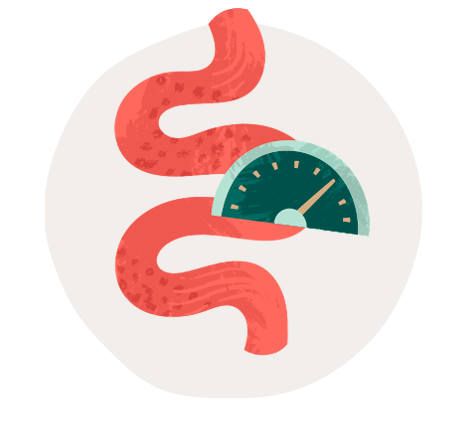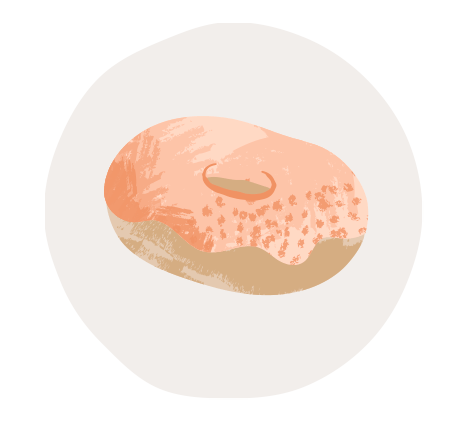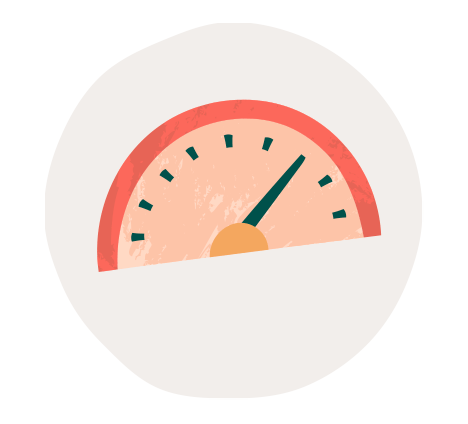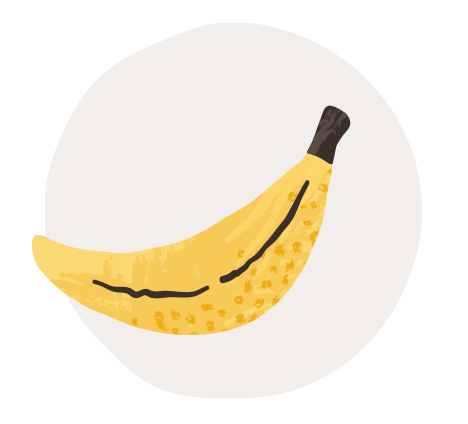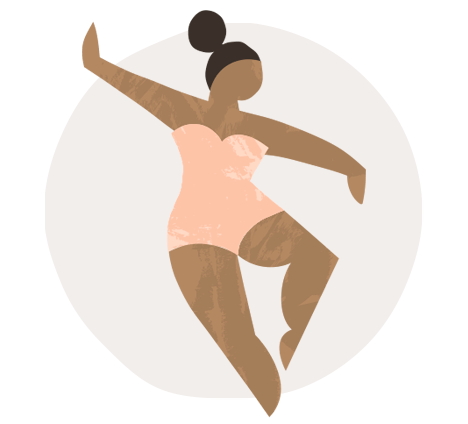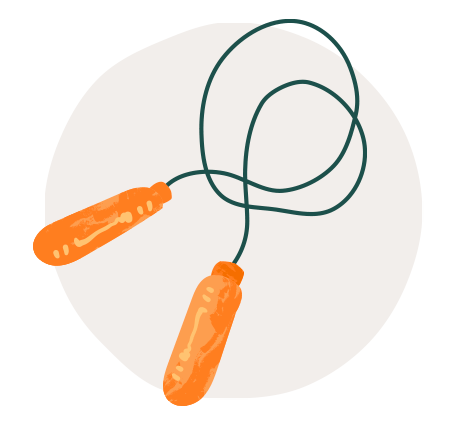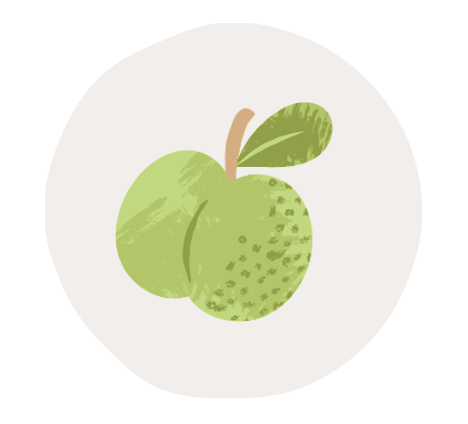LET’S START AT THE…START
WHAT THE HECK IS INTUITIVE EATING?
Intuitive Eating is an evidence-based framework that helps people move toward a more positive relationship with food, movement, their bodies, and themselves.
If you can’t remember a time when you weren’t beating yourself up for eating the ‘wrong’ thing, or trying to wish yourself into a smaller body, you are not alone. Let us repeat, you are NOT alone. Somehow, in our modern culture of progressive freedom, acceptance and equality, it is STILL acceptable (heck, even ‘normal’) for the majority of us to feel ‘not good enough’ in our own bodies. To live each day wishing we were someone, or something else.
But just because this feeling has been normalised in our society, doesn’t mean that it is normal. The concept of Intuitive Eating was born from a desire to counteract this normalisation, and to help individuals break free from the shackles of diet culture, body shaming, and restrictive eating. Intuitive Eating is the food revolution!
Tap to Read More
Fun fact: If diet culture didn’t exist, the concept of Intuitive Eating would just be called…. Eating!
As humans, we are all born with an innate ability to know how to feed ourselves. There are all sorts of cues that let us know what our body wants and needs to keep on keepin’ on. It’s just that at some point, external influences (like diet culture and misguided media) tend to get in the way.
By calling the experience of eating Intuitive, we are reclaiming the experience of eating, and once again making it our own. We are choosing to let go of the rules, restrictions and relevance that diets and diet culture has over us. We are choosing the path of self-determination, to go with our gut, our own… intuition.
And the thing about intuition, no one else can give it to you—it can only come from within.
Fun fact: If diet culture didn’t exist, the concept of Intuitive Eating would just be called…. Eating!
As humans, we are all born with an innate ability to know how to feed ourselves. There are all sorts of cues that let us know what our body wants and needs to keep on keepin’ on. It’s just that at some point, external influences (like diet culture and misguided media) tend to get in the way.
By calling the experience of eating Intuitive, we are reclaiming the experience of eating, and once again making it our own. We are choosing to let go of the rules, restrictions and relevance that diets and diet culture has over us. We are choosing the path of self-determination, to go with our gut, our own… intuition.
And the thing about intuition, no one else can give it to you—it can only come from within.
GET THE
STRAIGHT
ON DIETS.
Supported: Diets don’t actually work...
Research shows that a large percentage of diets fail, with most participants in clinical studies regaining lost weight within 1-5 years. Alongside that, many dieters admit to having unhealthy thoughts, feelings or behaviours related to food and their bodies. If you want to read nitty gritty details on why diets don’t work, we’ve covered it further down this page.
Supported: Diets increase your risk of developing health disorders
Dieting is a known risk factor for the development of eating disorders, disordered eating, weight gain in the long term, increased body dissatisfaction and poor health outcomes over time.
Diets, more often than not, take us far further away from true health and the original goals we had set in the first place. Rather than teaching us how to read our bodies intuitively and practice sustainable habits for the long-term, they direct us to unconsciously associate guilt and shame when allowing ourselves to enjoy a lifestyle filled with the enjoyment of eating. But people don’t know what they don’t know, and that’s why we are here!
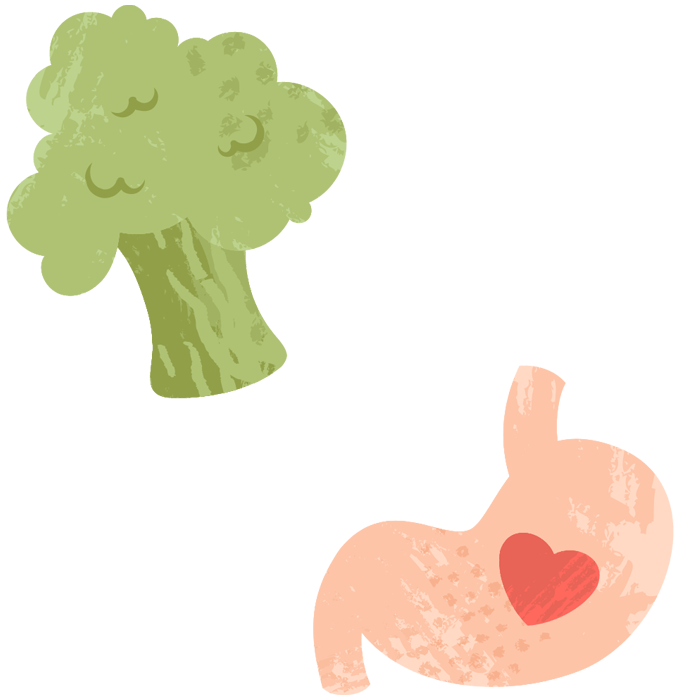

GET THE STRAIGHT
ON DIETS.
Supported: Diets don’t actually work...
Research shows that a large percentage of diets fail, with most participants in clinical studies regaining lost weight within 1-5 years. Alongside that, many dieters admit to having unhealthy thoughts, feelings or behaviours related to food and their bodies. If you want to read nitty gritty details on why diets don’t work, we’ve covered it further down this page.
Supported: Diets increase your risk of developing health disorders
Dieting is a known risk factor for the development of eating disorders, disordered eating, weight gain in the long term, increased body dissatisfaction and poor health outcomes over time.
Diets, more often than not, take us far further away from true health and the original goals we had set in the first place. Rather than teaching us how to read our bodies intuitively and practice sustainable habits for the long-term, they direct us to unconsciously associate guilt and shame when allowing ourselves to enjoy a lifestyle filled with the enjoyment of eating. But people don’t know what they don’t know, and that’s why we are here!
SO IF DIETS AREN’T THE ANSWER, THEN WHAT?
LET’S STEP BACK IN TIME
The concept of Intuitive Eating isn’t new. It’s actually really, really old (like, millennia old). For millions of years, we didn’t have diets or data to tell us when and what to eat. We didn’t have rules telling us to deprive ourselves of what we craved, or to feel guilty if we ‘gave in’, and we certainly didn’t have exposure to social media & celebrity culture to warp our sense of a healthy body image.
All we had was our body’s intuition.
And that’s what Intuitive Eating is all about! It’s about returning to a way of eating that is led by your body’s intuition and returning the ownership and joyful experience of eating back into your hands—exactly where it should be.
RECLAIMING YOUR INTUITION
As your Intuitive Eating coaches, it’s our job to help you to learn how to listen to your body once again, re-establish trust in your body’s innate cues of hunger and fullness, discover what foods satisfy you and feel good within your unique body, assist you in learning how to move in enjoyable ways (if you want to!), and work toward developing body respect and kindness. We believe in breaking unhelpful cycles and creating new ones.
Often, our relationship to food & our bodies may have been passed down within familial units—many people we sit with are able to date back their first diet and challenging body moment to a very young age. How beautiful it is that you have arrived here to break that cycle and create new, more helpful cycles to pass along to future generations to come!
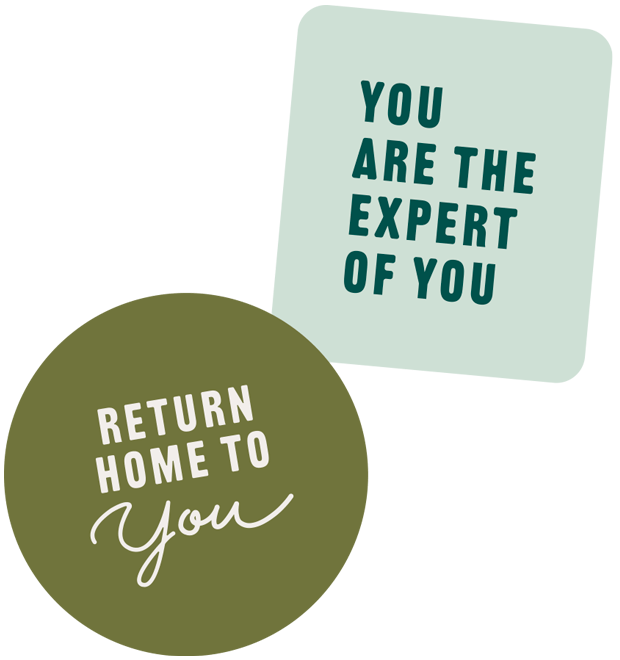
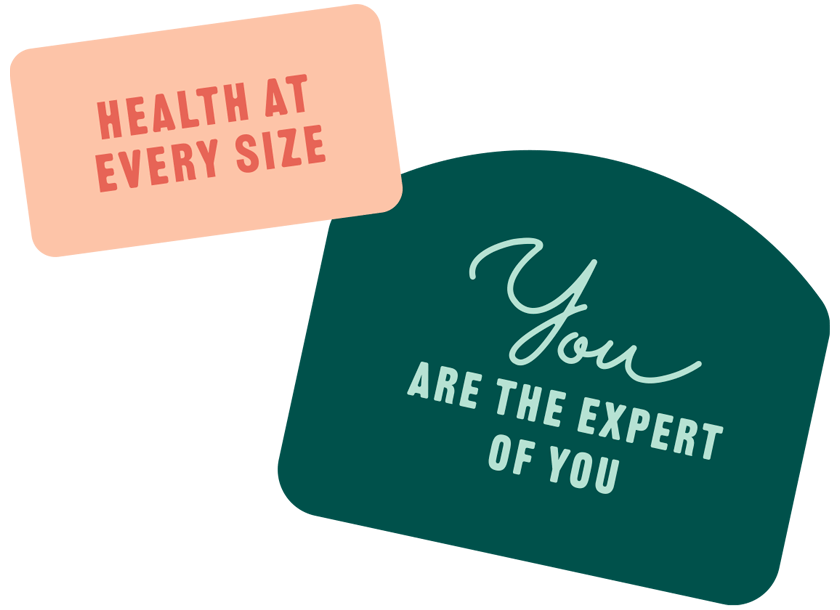
WHY YOU WONT FIND ‘DIETING’ ANYWHERE IN OUR PLAYBOOK.
No diet formula, magic pill, app, or program written by someone else can truly understand your body like you can. Only you know exactly what your unique hormonal cues of hunger (ghrelin) and fullness (leptin) are, what foods feel good in your body, what foods satisfy you and your taste buds, how much your body needs to feel adequately nourished, what movement you and your body truly enjoy, and the mechanisms you have in place for dealing with challenging emotions.
Only you have those answers.
Diets are a poor attempt at a one-size-fits all approach to ‘better’ health, promoting short-term weight loss as the ONLY goal, no matter the detriment it causes to your relationship with food, your quality of life and your ability to interpret and act on your internal hormonal cues long-term.
In contrast, the Intuitive Eating Framework flips the concept of dieting completely on its head. It teaches you how to listen to, understand and interpret your internal cues, rather than ignore them. It gives you the knowledge and skills to be able to create your own path to achieve the goals you want, without compromising your relationship with food, your body image and experience of eating.
Tap to Read More
Only you have those answers.
Diets are a poor attempt at a one-size-fits all approach to ‘better’ health, promoting short-term weight loss as the ONLY goal, no matter the detriment it causes to your relationship with food, your quality of life and your ability to interpret and act on your internal hormonal cues long-term.
In contrast, the Intuitive Eating Framework flips the concept of dieting completely on its head. It teaches you how to listen to, understand and interpret your internal cues, rather than ignore them. It gives you the knowledge and skills to be able to create your own path to achieve the goals you want, without compromising your relationship with food, your body image and experience of eating.
THE FACTS: WHY DIETING DOESN’T WORK
Alongside these risk factors, dieting can have dangerous health consequences if left unchecked.
We’ve outlined some of the more common risks here.
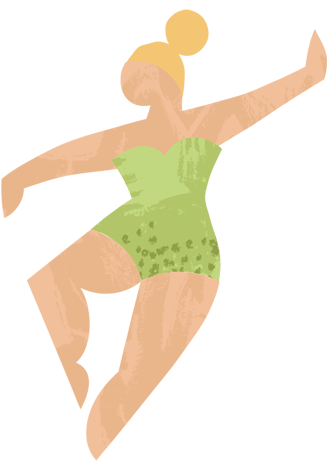
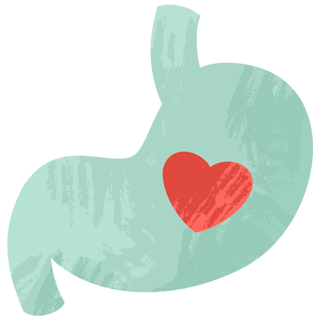
HOW DO I KNOW I’M READY TO START MY INTUITIVE EATING JOURNEY?
IF YOU…
- Feel nervous (but ready) to step toward letting go of diet culture’s exhausting demands, and instead reconnect to your body’s innate wisdom around food and nutrition,
- Are able to put weight loss as a primary goal on the ‘back burner’,
- And are open to having vulnerable, reflective discussion in a safe, guided and supportive environment,
Then it sounds like you’re ready to start your Intuitive Eating journey. Let’s get this show on the road! For the ‘self-starters’, you can take yourself through this process individually. We recommend purchasing the Intuitive Eating book & Intuitive Eating workbook by Evelyn Tribole and Elyse Resch.
If you find along the way that you could benefit from some 1:1 support, browse our Dietitians page for a curated list of trusted external Dietitians we recommend working with, or view the Intuitive Eating Counsellor Directory to find a Certified Intuitive Eating Counsellor in your local area.
IF YOU…
- Have the pure desire to lose weight, and cannot see yourself being able to put this primary goal on the ‘back burner’ for the duration of the program,
- Or have a diagnosis of Anorexia Nervosa, Bulimia Nervosa or Binge Eating Disorder,
- Or have a complicated past or present medical history,
Then perhaps some 1:1 Dietitian care may be required to unpack your current situation before exploring Intuitive Eating at a later, more appropriate time.
Please know that many Dietitians who are well versed and trained in approaches and frameworks such as Intuitive Eating, Health At Every Size and The Non-Diet Approach, hold safe spaces for you to discuss your desire for weight loss, if that desire is present, but many trained in these approaches will dig deeper to understand what lies beneath and help you be on the path toward a journey of authentic health without diet culture & weight stigma.

